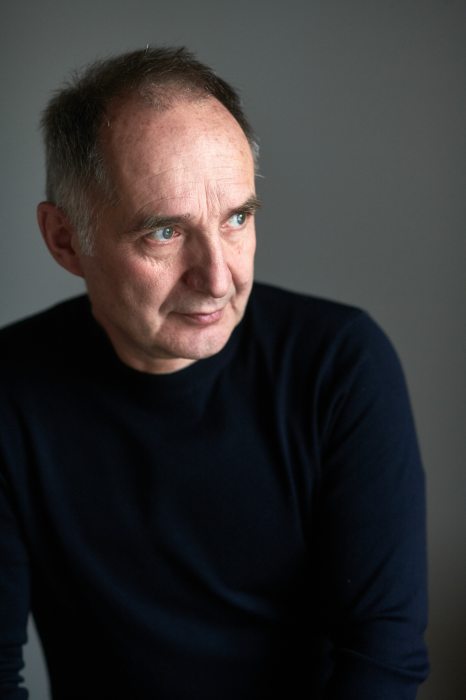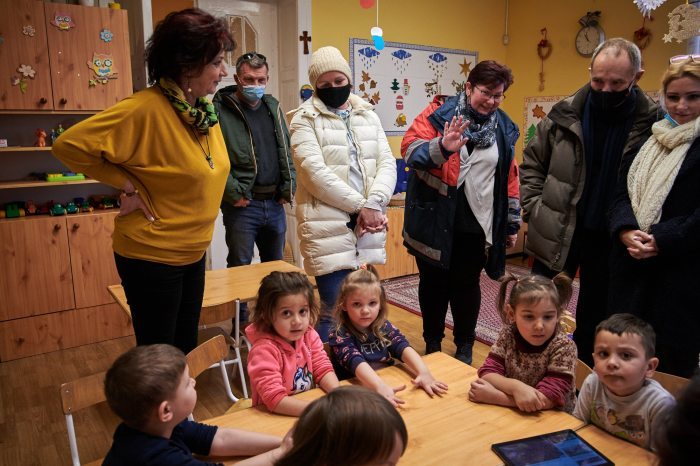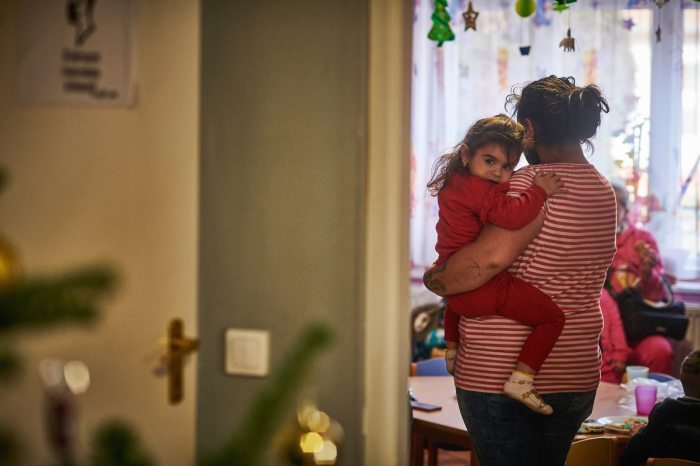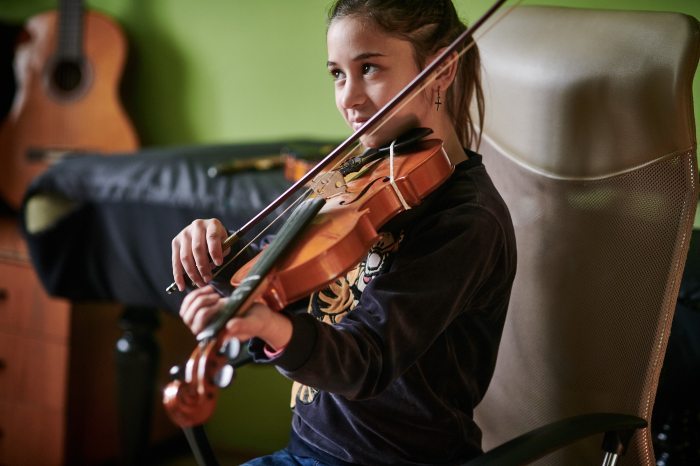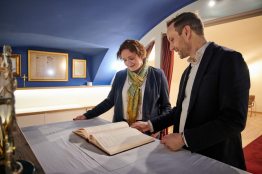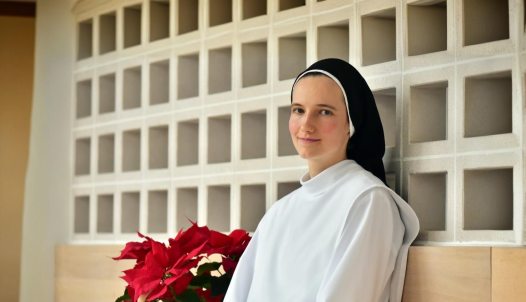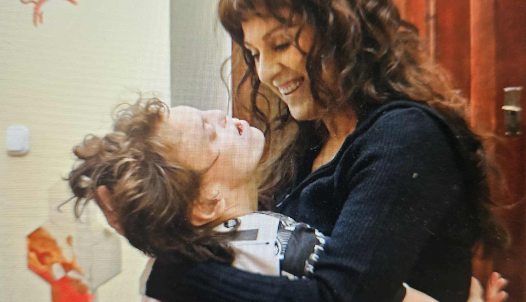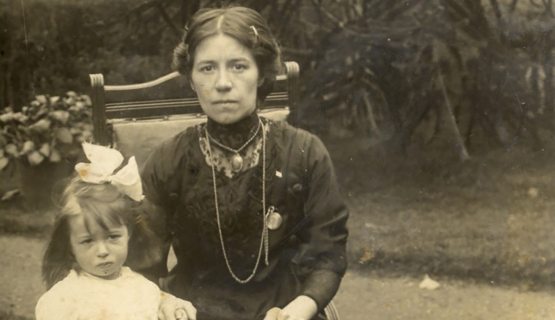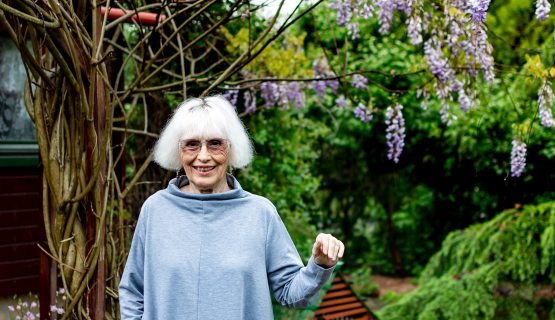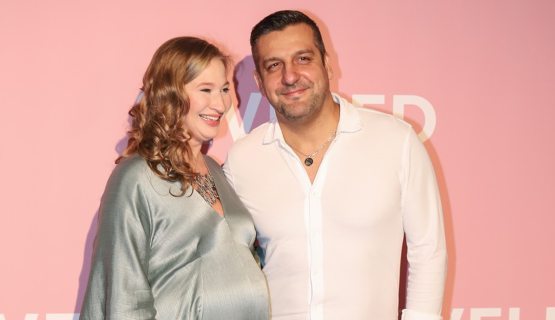From minus one to two – We visited Tarnabod with Prime Minister's Commissioner Miklós Vecsei
"The twinkle in their eyes," says Maca, "tells me which kids want to go from one to two. Or rather from minus one to one." Melinda Vörösné Bangó has been a local helper and mentor at the Tarnabod school since 2016. She was nine years old when she met the staff of the Hungarian Charity Service of the Order of Malta who came to the village. Recently, on the occasion of her wedding, she wrote a letter to Miklós Vecsei, Vice President of the Hungarian Charity Service of the Order of Malta and Prime Minister's Commissioner for the Emerging Villages Program, recalling this first meeting with "Uncle Miklós", who gave a pair of pink shoes to the little girl who ran barefoot into the street. In the 16 years since then, Maca has become one of the most characteristic mainstays and driving forces behind the development work in Tarnabod.
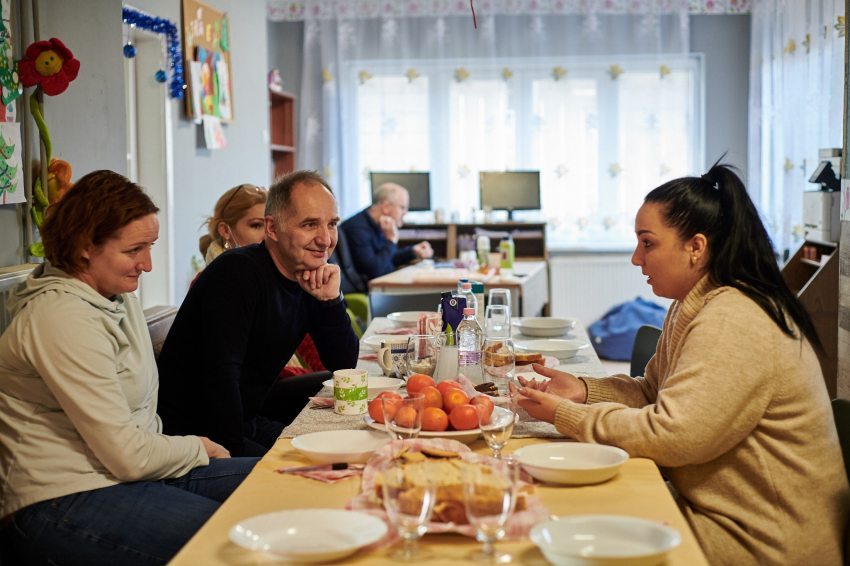
We are traveling to Tarnabod with the staff of the Hungarian Charity Service of the Order of Malta so that they could show us where hard work can take you with the Emerging Villages program. For almost two decades, the Hungarian Charity Service of the Order of Malta has been working in Hungary's most deprived settlements, including Tarnabod, under the “Presence” (“Jelenlét”) program. The essence of the program is that they first establish a presence in each place, a community center, where expert staff patiently work to diagnose the local community and, based on the diagnosis, continue the development work with individual solutions. The ambitious government program, based on the methodology of the Hungarian Charity Service of the Order of Malta, aims to help 300 of the poorest communities in our country to catch up... "Integration must start the other way round: we must first integrate into these communities, understand the mindset, the drives, the internal forces, i.e. the way the community works. Then we can help, then we can help well," says the Prime Minister's Commissioner in the car.
The significance of the program, led by Vecsei, who has decades of empirical experience and is committed to it, is that it is both systemic and based on individual diagnoses. Of the 300 municipalities included in the program, based on various statistical data, 118 have got an owner so far and thus have been able to start the program. In these municipalities, the staff of an NGO settles down, sets up a center, and begins to work systematically to establish the diagnosis. In addition to the Hungarian Charity Service of the Order of Malta, the Hungarian Reformed Church Aid, Caritas Hungary, the Hungarian Interchurch Aid, and the Hungarian Baptist Aid are the backbone of the program, but the Greek Catholics, the Benedictines, the Salesians, the Jesuits, and some non-church NGOs have also taken on one or two settlements.
The problems to be solved are complex, varied and sometimes almost impossible to solve. In most places, property ownership is unresolved, while at the same time there are huge mortgages on them. Utilities for basic services are often lacking, and at those places where there are utilities, there you have to take good care of them because the temptation to make “illegal connections” is great. There are no jobs in entire districts, there is no transport to work or school, and there are also loan sharks and traders who exploit the poorest.
Some of the people here are focused on survival, and when the survival instinct takes over, it overrides everything: human relationships, values, goals, dignity.
"This is what distinguishes destitution from poverty," says the Prime Minister's Commissioner, "especially so-called decent poverty. It's not easy to imagine the state of those families who really have neither the physical nor the mental energy to, say, dig up the yard and sow the seeds. It's particularly difficult to understand for those who have lived periods of their lives as poor and have managed decently."
What we are talking about here is the biggest problem Hungary is facing, with no sure-fire solution. There are as many people living in these three hundred settlements, as in Komárom-Esztergom County, but the number of homes without utilities is five times higher than elsewhere, the number of registered jobseekers is six times higher than elsewhere, while the number of births is almost twice the national average. If we juxtapose the map of the 300 poorest settlements with the map showing the territorial distribution of the Roma population, the overlap is clear. If we take into account the birth data, including the age of the women giving birth, and the reproductive rate, we can calculate that 8-10% of the population will be born in these villages in a twenty-year time span.
"The stakes are very high", adds Miklós Vecsei.
"Hungary's fate is decided here, not where we would like it to be. What happens to these children in these settlements is not only a social question, it is a serious economic question. In twenty years' time, will they be supporters or dependants, taxpayers or recipients of benefits? These are questions that affect not only them but all of us."
Despite the many collapsed houses and the many sad signs of poverty, Tarnabod has a good atmosphere and lively life. Melinda Nyírfalvi, the head of the institution, takes us through the institutions that have been set up by the Order of Malta to teach, educate and develop children, following them from conception to high school and, if possible, beyond. "We focus on the first thousand days of human life," she explains, "not only in Tarnabod, but in the whole program, because that determines everything." This means that attention is paid to early childhood care, such as a smoking-free pregnancy, and then all areas of infant and early childhood development are given every opportunity for healthy physical, mental and emotional development, from exercise to neurofeedback. I was particularly impressed by the fact that all the institutions offer movement improvement: with special equipment for the little ones and during sports and ballroom dancing classes for the bigger ones. We learned that Roma mothers, who are often very young, are reluctant to let their babies out of their hands. The reason for this is not because they are overprotecting, but is more to do with the circumstances: in many houses, there is nowhere to put the child down (there is no bed and the floor is unsuitable). However, a child held in hands does not learn to crawl in time, which is a major disadvantage later on. In the ”Secure Start Children's Homes” (“Biztos Kezdet Gyermekházak”) in Tarnabod, mothers are also taught what to practice with their children. Other offers for mothers, such as manicures and haircuts, are designed to encourage them to come to the center with their children.
"The “Presence” program is based on the hope that after five or six years we will be able to find local people to work with us. We already have many support workers who have grown out of these programs themselves. The girls are attracted to childcare-related activities because they had good experiences there as children. Little by little, the number of people employed in the institutions is increasing in each municipality. Those who grow up here are received with less suspicion by the locals, and also have a better understanding of the community patterns and of the hidden or strange systems of relationships. They can often be more effective here, for example in the schooling of a child or persuading parents. They are the guarantees of the long-term viability of the program. We will be out of Tarnabod for years, and Maca will still be here," explains Miklós Vecsei.
Children whose early development has been taken care of and who have received careful nursery, school, and after-school education are more likely to become active, self-sufficient, and, not least, satisfied, self-respecting members of society.
To achieve this, it is important for them to see good examples. Children born into the poorest communities grow up in closed communities. If they do not have a vision, it is because they do not see good role models, working adults with useful vocations. This is why the importance of committed and courageous businesses getting involved in one of these communities is so important. Tarnabod has an electronic waste processing plant, but the entrepreneur who runs it, Attila Bencsik, has already brought a biotechnology lab here and is working on new opportunities. And in the school, Maca Bangó says that when the model houses for social rental housing were built under the Emerging Villages Program - which are now becoming eligible for local families - the children immediately started saying they wanted to be architects or bricklayers or electricians. A person who works for the Order of Malta, like Maca, who not only learnt a trade on her own, but then graduated at an evening-high school program and now attends two different universities, is also a good role model for the children. She is also one of the Family Housing Subsidy Scheme (“CSOK”) advisors in the area, helping many young families to get their own home. Maca has also found a partner among the musicians who have come to them under the Symphony program. This music program minimises the theoretical curriculum, gives the children a sense of achievement and joy in making music together, and for the most talented, a chance to move on and develop.
The dedication with which the programme's staff introduce us to the ins and outs of their work, the joys and the amazing difficulties, quickly sweeps us off our feet. It's often said that helping professionals should not get emotionally involved. Here we learn about another dimension: they are not cold or distant, but they are also aware of their emotions and, above all, they help each other to manage them. The unspoken mentoring relationship between manager and colleague, between more experienced colleague and newcomer, is also very palpable. They know, love and support each other.
"I learned most things about life from my grandfather. He was originally a shoemaker, but he lived his life as a peasant. I grew up at his feet, and from him I learned the clear common sense of going close to the task, examining, measuring and acting accordingly. The way shoes are made. We practice this in the Presence (“Jelenlét”) program. A good diagnosis is more important than anything. That we can now match this with resources, that we have government money for the tasks identified, is a state of grace. So is the opportunity to make some systemic improvements. It takes patience and a lot of time - but financial resources can shorten that time. In Tarnabod, where we have been present for 17 years, we feel that things are perhaps starting to turn around, that this municipality is well on the way to becoming self-sufficient. But it still has a long way to go."
As I am listening to the Prime Minister's Commissioner and I can almost hear the reader asking with me: what can I do to help?
My interviewee's T-shirt reads: ” What do you have that you did not receive?” "In order to help well," he says, "you first have to answer this question well. Our talents, our opportunities, and our life circumstances resulting from these were all given to us. If I've been given talents that I can produce a lot more with, whose talents are those that I've produced? Do I keep it for myself, build an empire out of it, or do I give it to those who have less? If we can sometimes marvel here on our balcony of prosperity at how much we have been given, and give thanks for it, then we will easily be able to give some from it. We need to give wisely, of course: in addition to enthusiasm and goodwill, we need a wealth of knowledge, experience, and complex skills, and even then there are still many failures. Those with a strong determination will find a link to well-established organizations that have this knowledge. That's who we work with."
Képmás magazine is launching a new series called Public Treasure, in which Kata Molnár-Bánffy, the publisher of Képmás, talks to dedicated people whose successful work can be of interest to many, and is a Public Treasure, as the title of the series suggests: a common issue, something we want to take care of.
